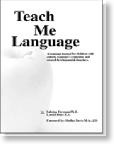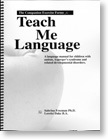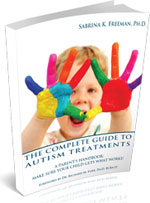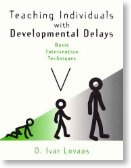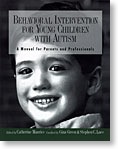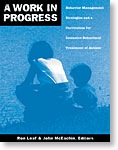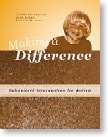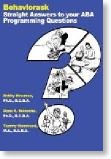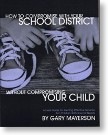The Latest Academic Justification to Ration Treatment is a Doozy
06/06/12 20:41 Filed in: autism | Asperger's Syndrome
The latest article to come out about autism from California (Fountain et al, 2012) creates six developmental trajectories that characterize children with autism. Why should we care? It’s quite straightforward. The outcome of this research can be used to both justify providing treatment for children with autism and also the rationing of treatment for those children with autism who have an “intellectual disability” and are therefore deemed unworthy of scarce resources.
Here’s the summary.
Fountain and colleagues followed almost seven thousand children diagnosed with autism born in California, from 1992 through to 2001. Then they created six “trajectories” in an effort to predict how well the children will progress based on various dimensions. Although this article is full of findings that may be disturbing to parents for a variety of reasons, in my view the most dangerous findings have to do with intellectual disability and where the mother was born! The researchers found that:
“Having an intellectual disability was strongly associated with LF (Low Functioning) trajectories, as was having a foreign-born mother. Finally, children of white mothers were less likely to be LF than bloomers, as were children of Hispanic mothers (relative to nonwhites).” p. e1117
Allow me to translate: if your child at diagnosis is given an IQ test and does not score in the normal range, and/or if you are a foreign born mother, watch out! Those rationing treatment may use this article to deny your child treatment. Immigrant parents need to be particularly vigilant!
Luckily, there is one finding that can be used to argue against those rationers: The Late Bloomer. In this article, they found one group of children who are late bloomers. These children,
“… most likely to “bloom” are those without intellectual disability and those with more educated, non- minority mothers. Although we are unable to identify the specific mechanisms through which socioeconomic status affects trajectory outcomes, the intervening variables likely include home and neighborhood environments, quality and intensity of treatment, quality of education, the efficacy with which parents are able to advocate for their children with institutions providing services, and many other factors in various permutations.” p. e1118
In other words, if the child’s IQ was typical at diagnosis, and parents were better advocates with money to purchase superior treatment services, their children improved significantly.
So what do we do about the IQ tests? My view is since IQ testing is so wildly inaccurate when it comes to young children with autism, it seems criminal to seal their fate with a socially constructed test that has a decades-long history of being discriminatory in its impact.
What about minority or immigrant status of the parent? When it comes to the parent’s minority status, that’s when the discrimination becomes explicit. In short, if you smell discrimination, let this article alert you to protect yourself and your child! If you are in a minority, make sure that you find an advocate to write letters for you and attend meetings with you about your child. Keep this article in your back pocket if you suspect that your minority status is influencing the treatment or placement services of your child. When you demand equal treatment for your child, the system will be more likely to listen to you if you have evidence from a peer-reviewed journal that discrimination against children like yours has been going on for decades.
Here’s the summary.
Fountain and colleagues followed almost seven thousand children diagnosed with autism born in California, from 1992 through to 2001. Then they created six “trajectories” in an effort to predict how well the children will progress based on various dimensions. Although this article is full of findings that may be disturbing to parents for a variety of reasons, in my view the most dangerous findings have to do with intellectual disability and where the mother was born! The researchers found that:
“Having an intellectual disability was strongly associated with LF (Low Functioning) trajectories, as was having a foreign-born mother. Finally, children of white mothers were less likely to be LF than bloomers, as were children of Hispanic mothers (relative to nonwhites).” p. e1117
Allow me to translate: if your child at diagnosis is given an IQ test and does not score in the normal range, and/or if you are a foreign born mother, watch out! Those rationing treatment may use this article to deny your child treatment. Immigrant parents need to be particularly vigilant!
Luckily, there is one finding that can be used to argue against those rationers: The Late Bloomer. In this article, they found one group of children who are late bloomers. These children,
“… most likely to “bloom” are those without intellectual disability and those with more educated, non- minority mothers. Although we are unable to identify the specific mechanisms through which socioeconomic status affects trajectory outcomes, the intervening variables likely include home and neighborhood environments, quality and intensity of treatment, quality of education, the efficacy with which parents are able to advocate for their children with institutions providing services, and many other factors in various permutations.” p. e1118
In other words, if the child’s IQ was typical at diagnosis, and parents were better advocates with money to purchase superior treatment services, their children improved significantly.
So what do we do about the IQ tests? My view is since IQ testing is so wildly inaccurate when it comes to young children with autism, it seems criminal to seal their fate with a socially constructed test that has a decades-long history of being discriminatory in its impact.
What about minority or immigrant status of the parent? When it comes to the parent’s minority status, that’s when the discrimination becomes explicit. In short, if you smell discrimination, let this article alert you to protect yourself and your child! If you are in a minority, make sure that you find an advocate to write letters for you and attend meetings with you about your child. Keep this article in your back pocket if you suspect that your minority status is influencing the treatment or placement services of your child. When you demand equal treatment for your child, the system will be more likely to listen to you if you have evidence from a peer-reviewed journal that discrimination against children like yours has been going on for decades.


